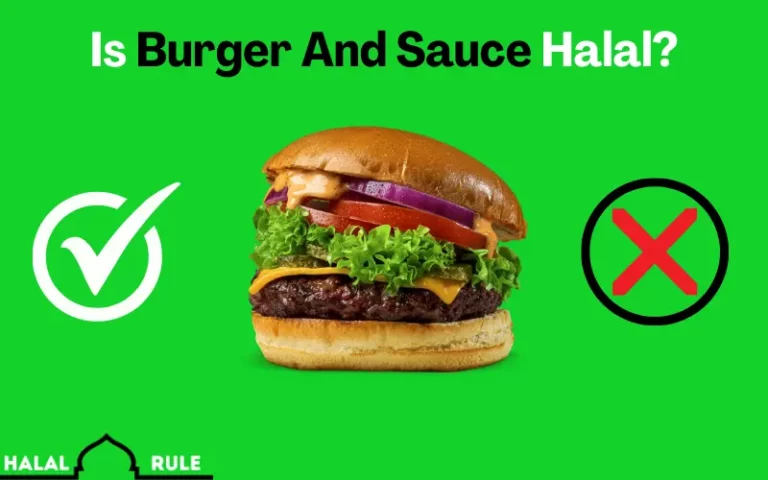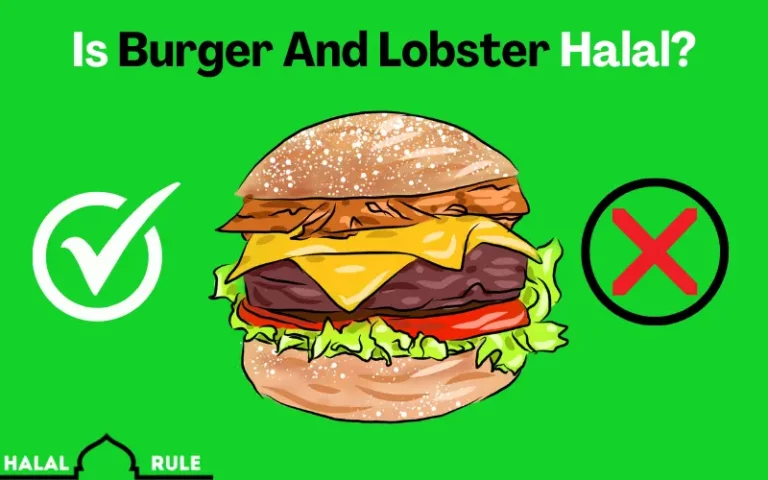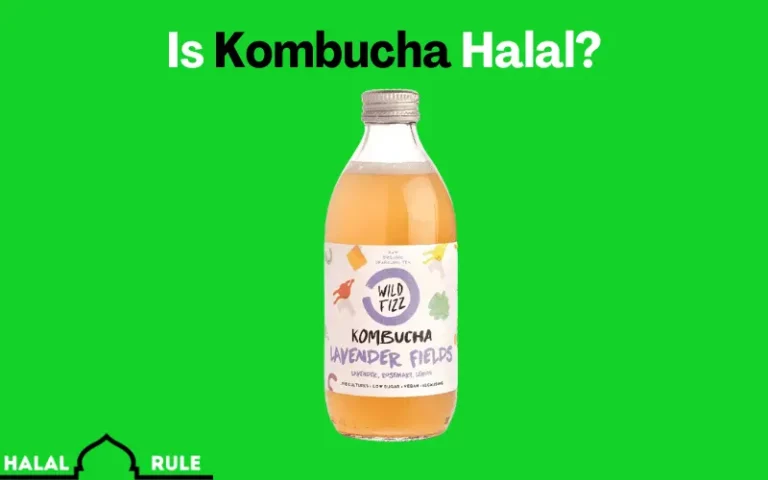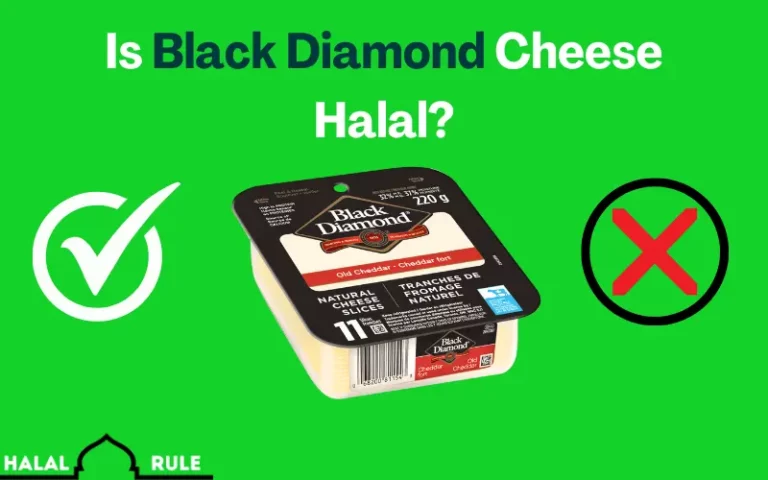Is Gelling Agent Halal Or Haram In Islam? (Ans)
You might have seen gelling agents used as ingredients in food, cosmetics, and pharmaceutical products.
It is a common ingredient that acts as a stabilizer, thickener, and gelling agent.
But have you ever stopped to think whether this ingredient is halal or not?
In this blog post, we will answer is gelling agent halal with all the necessary information you need to know. So let’s clear the doubt.

Is Gelling Agent Halal?
Gelling agents can be either halal or haram, depending on the origin of their ingredients.
There are different types of gelling agents available in the market, and each one has a different origin.
For example, some are made from animal-derived ingredients like gelatin, which is made from animal’s skin, tendons, and bones. As per Islamic law, consuming animal-derived ingredients is forbidden (haram).
Similarly, according to Islamic law, gelling agents such as agar, pectin, and carrageenan are derived from plant sources such as seaweed, and these are permissible (halal) for consumption.
Therefore, it is essential to look at the origin of ingredients before you can answer the question of whether a gelling agent is halal or not.
However, many people have a misconception that all gelling agents are haram and should be avoided. This is not true, as many gelling agents are derived from plant sources and are safe for consumption.
Hence, to identify whether a gelling agent is halal or not, you must check its origin and ingredients. If the source of the ingredients is plant-based, then it is permissible to use.
For more about Pectin, you can read is pectin halal.
What Is Gelling Agent?
Gelling agents are substances that thicken and stabilize mixtures, enabling them to hold their shape or form.
They are important to many recipes and products, such as jellies, jams, creams, and other food items. Gelling agents can also be used in cosmetics, pharmaceuticals, and other industries.
Gelling agents are made from various ingredients such as:
- Gelatin
- Agar-Agar
- Pectin
- Carrageenan
- Starch
Let’s know to understand each gelling agent in more detail to identify which ones are halal.
Gelatin
Gelatin is a type of gelling agent made from the skin, tendons, and bones of animals such as cows or pigs. This ingredient is haram according to Islamic law and should be avoided by Muslims.
If you see gelatin gelling agent listed as an ingredient, you should avoid this product as it is not halal.
Agar-Agar
According to Islamic law, Agar-agar is a gelling agent made from seaweed and is classified as halal. It is commonly used in desserts, jellies, and other food items.
This ingredient is a great alternative to gelatin as it has the same properties and texture but is halal.
Pectin
Pectin is a natural gelling agent made from fruits such as apples, plums, or citrus fruits. It can also be extracted from plants such as sugar beet pulp and alfalfa.
Pectin is classified as halal and can be used in cooking. It has a wide range of applications, such as jellies, jams, preserves, and other foods.
Carrageenan
According to Islamic law, Carrageenan is a gelling agent made from seaweed and is classified as halal. It is commonly used in desserts, jellies, and other food items.
This ingredient is a great alternative to gelatin as it has the same properties and texture but is halal.
Starch
Starch is another type of gelling agent made from grains such as wheat or corn. It can also be derived from potatoes, tapioca, or arrowroot.
Starch is classified as halal and can be used in various recipes, such as gravies, dressings, and sauces. It is also used in processed foods such as canned vegetables and soups.
In conclusion, we can see that there are different types of gelling agents available in the market with different origins.
While some gelling agents are derived from animal sources and hence not permissible, others, such as agar-agar, pectin, and carrageenan, are halal.
It is important to check the origin of any gelling agent before using it in a recipe or product.
You might also like knowing is glycerin halal.
How To Identify Gelling Agent Source?
If you are unsure about the source of a gelling agent, and no source is mentioned on the product label, you can still find out the source by the following methods:
Contact the manufacturer or supplier. The company should be able to provide you with the source of the gelling agent. You’ll find the contact detail on the packaging or their official website.
Do some research online and look for reviews of the product. Someone might have already reviewed the source of ingredients, or the company itself tweeted or mentioned it on its website.
Look for certification labels or logos. Many products are Halal certified, and if you see a logo on the packaging, the product is halal and the gelling agent used is also halal.
These are some of the methods you can use to identify if a gelling agent is halal.
Also read is gluten halal.
FAQs
Q. Is gelling agent pectin halal?
Answer: Yes, pectin is a gelling agent made from fruits such as apples, plums, or citrus fruits and is classified as halal according to Islamic law.
Q. Is gelling agent agar halal?
Answer: Agar-agar is a gelling agent made from seaweed and is classified as halal according to Islamic law. It is commonly used in desserts, jellies, and other food items.
Q. Is gelling agent carrageenan halal?
Answer: Carrageenan is a gelling agent made from seaweed and is classified as halal according to Islamic law. It is commonly used in desserts, jellies, and other food items.
Q. Is gelling agent gelatine halal?
Answer: No, gelatine is a type of gelling agent made from the skin, tendons, and bones of animals such as cows or pigs. This ingredient is haram according to Islamic law and should be avoided by Muslims.
Q. Does gelling agent contain gelatin?
Answer: A gelling agent might contain gelatin, depending on the source of the ingredient. Otherwise, gelling agents are also sourced from plant sources such as seaweed.
Q. What are gelling agents made of?
Answer: Gelling agents are made from various ingredients such as gelatin, agar-agar, pectin, carrageenan, and starch. Each of these ingredients has different origins.
Q. Does gelling agent contain pork?
A. Gelling agents can contain pork-derived ingredients, such as gelatin, which is made from pig skin or bones. However, not all gelling agents are derived from animal sources.
Q. What is gelling agent made from?
A. Gelling agents can be made from a variety of sources, such as animal by-products, seaweed, and plant extracts. It is important to check the ingredients list on the packaging or contact the manufacturer to confirm the source of the gelling agent.
Q. Is gelling agent pectin vegetarian?
A. A plant-based gelling agent, pectin is suitable for vegetarians as it is derived from plants. However, not all gelling agents are vegetarian-friendly, so it is important to check the ingredients list.
Conclusion
It is important to understand that not all gelling agents are halal. To identify whether a gelling agent is halal, you must check its source and ingredients.
If the source of the ingredient is plant-based, then it is permissible to use. Gelatin should be avoided as it is derived from animal sources and hence haram according to Islamic law.
Agar-agar, pectin, carrageenan, and starch are some of the halal ingredients that can be used as gelling agents. So make sure you check the source before using any product containing these ingredients.
I hope your query is gelling agent halal or haram is answered. Stay tuned for more such blog posts.






